Multiparameter probe for water quality
- Eureka Water Probes - Manta+
- Trimeter - Three Parameters at the Lowest Possible Cost
- A Data Display for Every Application and Budget
- The Manta family offers up to 12 sensors in one
Event Triggering increases the frequency of data logging when a user-selected parameter changes by a certain amount over a certain time.
Digital Turbidity Sensor has built-in autoranging for excellent performance in near-zero FNU waters, with an upper range to 5000 FNU. Calibration Stability Indicator tells you when your sensor is stable enough for calibration. New Sensors include tryptophan/BOD, optical brighteners, bromide, calcium, and sodiumions, fDOM II, chlorophyll red, and transmissivity. Other new features include: Custom Parameter, Calibration Stability Indicator, opper-Gauze Antifouling Kit, Expanded Calibration Log, Raw Values, Aquarius™ Compatibility, Battery Voltage Indicator.
Ideal for:
- Spot checking
- Profiling
- Low flow sampling
- Lab use
- Wireless communication to cable reels
How does it work?
The mantaMobile connects to the multiprobe’s underwater cable, any length up to 200 meters. It provides power to the probe, and a wireless connection to a Bluetooth-enabled display. Eureka’s mantaLink App for the display device provides control features, including sensor configuration, instant and automated data capture, file management, calibration, GPS, geofencing, and more! Data files may be emailed for convenience.
mantaLink App
You must first download the mantaLink App to your display, from the Google Play Store, or Apple App Store. Once paired with the mantaMobile Bluetooth device, launch the App to connect to a Eureka multiprobe.
Probes
Trimeter and Manta Probes are multiparameter sondes for monitoring water quality in fresh, brackish and marine waters. All sondes may be used for discrete sampling, profiling, as self-powered loggers, or connected to telemetry stations for continuous real-time monitoring, with water quality data accessible via cloud-based software. Our sondes communicate RS-232, SDI-12 or Modbus, for flexibility in connecting to a variety of different data loggers and PLC’s. Eureka offers the largest selection of water quality sensor technologies in the industry. So in addition to standard configurations, each probe may be customized for your specific application. Pick sensors of your choice to fully populate larger probes, or add a battery pack to convert a probe to a logging device. All Trimeter and Manta probes feature anti-corrosive housings and sensors, robust marine bulkhead connectors, and anti-fouling options. LED status indicators on each sonde provide important diagnostic information. Each probe includes an industry-leading 3 year warranty. Operate your Trimeter and Manta probes with a variety of display options, via a direct or Bluetooth connection. Intuitive control software, available for Windows, iOS and Android is included at no additional cost with every probe.
Trimeter
Eureka’s compact, low cost Trimeter is designed for projects that require the same high-quality features of a Manta+ probe, but fewer sensors.
Manta 20
The portable, yet rugged Manta+20, is well suited for site-to-site spot checking or profiling, in any type of water. The +20 fits in a backpack too!
Eureka 25
Eureka’s compact Manta+25 is an excellent choice when your application calls for turbidity monitoring, but only a few additional sensors...
Manta 30
Eureka’s Manta+30 packs big 4, ORP, depth, and wipered turbidity - plus one ISE sensor, all into one small rugged probe. Learn More about the 30 here.
Eureka 35
Eureka’s Manta+35 accommodates up to 11 different sensors, making it extremely versatile for a wide variety of water quality monitoring applications...
Easyprobe
You’ve never seen this performance at this price in a water-quality monitor.
Manta 40
Eureka’s Manta+40, hold more sensors than any multiparameter probe in the industry. It is ideal for long-term telemetry deployments.
| Trimeter |  |
| |
| 20 |  |
| |
| 25 |  |
| |
| 30 |  |
| |
| 35 |  |
|
|
| 40 |  |
| |
Mobile devices
Display Options Android - Tablets & Smart Phones iOS - iPhone or iPad
Battery Life
A fully charged mantaMobile device will run up to 22 continuous hours (based on operating a Manta+ multiprobe with 13 sensors). Run time increases with fewer sensors; will vary depending on the type and number of sensors installed.
Default Communications Settings
Display Options Android - Tablets & Smart Phones iOS - iPhone or iPad
Trimeter - Three Parameters at the Lowest Possible Cost
Get all the features of a Manta, including top-grade sensors and simple software, in an instrument designed for economy. Each Trimeter employs one of any sensor that Eureka offers, plus optional temperature and depth sensors.
A Data Display for Every Application and Budget
The AmphibianPlus is a waterproof, full-function Windows PDA the Manta user interface, with GPS and cell phone options. The Bluetooth Battery powers your Manta, and lets you talk wirelessly to the Manta with any Bluetooth-equipped Android or Windows peripheral. You can save up to $1500 by using your own phone instead of a limited-purpose data display.
One Job – One Instrument
The Manta family offers up to 12 sensors in one, integrated package. Available sensors include temperature, optical DO, pH, ORP, conductivity, depth, level, turbidity, fluorometers including chlorophyll a, chlorophyll red, phycocyanin, phycoerythrin, fDOM, fDOM II, rhodamine, fluorescein, crude oil, refined fuels, optical brighteners, and tryptophan/BOD, CO2, ammonium, nitrate, sodium, calcium, bromide, chloride, TDG, PAR, dual PAR, and transmissivity.
Field-Proven Methods to Minimize Fouling
The Extended Turbidity Brush cleans turbidity and other sensors, such as DO, chlorophyll, and BG algae. The MiniCleaner is a stand-alone wiper system used when you don’t have an Extended Turbidity Brush. The Copper-Gauze Kit wraps the sensors in copper gauze that slowly dissolves, bathing the sensors with the copper ions that discourage biofouling. Copper gauze is superior to solid copper, which become ineffective once oxidized.
Specificatons: Learn More
Applications
Lakes, Rivers, Ground Water, Storm Water, Estuaries, Streams, Ponds, Near-shore Oceanographic, Process Waters, Waste Waters, Laboratory Research
 |  | |
| Site to Site Profiling | Process Monitoring | |
 |  | |
| Unattended Logging | Ground Water | |
 |  | |
| Telemetered Deployments | Buoy Deployments |
| Trimeter | Manta+20 | Manta+25 | Manta+30 | Manta+35 | Manta+40 | |
| Diameter | 1.85" | 1.95" | 2.45" | 2.95" | 3.5" | 4.00" |
| Length - w/o Battery Pack | 13.5" | 19" | 19" | 19" | 19" | 19" |
| - Add Internal Battery Pack | 22" | 27" | 27" | 27" | ||
| Weight - with IBP | 2.8 lbs | 2.4 lbs | 2.5 lbs | 5.0 lbs | 9.0 lbs | 10.0 lbs |
| Number of sensors | Any single sensor plus depth and temp option | Up to 6 | Up to 6 | Up to 7 | Up to 11 | Up to 13 |
| Battery Pack | 3 "D" | 3 "D" | 3 "D" | 8 “C” | 6 “C” | 6 “C” |
| Operating Temperature | -5 to 50 C | |||||
| Depth Rating | 200 m, Max depth for ISE and TDG sensors is 15 meters | |||||
| Communications | RS-232, SDI-12, USB or Bluetooth | |||||
| Sample Rate | 1 Hz | |||||
| Data Memory | >1,000,000 logged readings | |||||
| Size | 3.6" W x 7.25" L x 1.5" D |
| Weight | 1.3 lbs |
| Operating System | Microsoft® Windows Embedded Handheld 6.5.3 |
| IP Rating | IP68 |
| Memory and Data Storage | 512MB RAM; 8 GB - > 8,000,000 logged readings |
| Parameters | Range | Resolution | Accuracy | Comments | |
| Temperature | Temperature | -5 to 50 C | 0.01 | 0.1 | never needs calibration |
| pH/ORP | pH | 0 to 14 units | 0.01 | 0.1 within 10 C of calibration, 0.2 otherwise | refillable reference electrode; corrected for temperature; typical sensor life > 4 years |
| ORP | -999 to 999 mV | 1 | 20 mV | platinum ORP sensor is combined with pH sensor | |
| Turbidity | Turbidity | 0 to 40 FNU | 4 digits with maximum of two | 2% of reading or 0.2 | compensated for temperature; ltered for non-turbidity spikes; includes wiper to clean the optics |
| 40-400 FNU | 2% of reading or 0.2 | ||||
| 400-5000 FNU | 2% of range | ||||
| Transmissivity | 0 to 100% transmission | 4 digits | linearity of 0.99R ² | WETLabs SeaStar; mounts alongside the Manta | |
| Dissolved Oxygen (optical sensor) | Concentration | 0 to 20 mg/l | 0.01 | 0.1 | compensated for temperature and salinity; EPA approved "lifetime" luminescence method; typical sensor cap life > 4 years |
| 20 to 30 mg/l | 0.01 | 0.15 | |||
| 30 to 50 mg/l | 0.1 | 5% | |||
| % Saturation | 0 to 500% saturation | 0.1% | corresponds with the accuracy of the concentration reading | ||
| Conductivity | Specific Conductance, µS/cm | 0 to 5000 µS/cm | 4 digits with maximum of one decimal | ±0.5% of reading ±0.001 | corrected for temperature; four easy-to-clean graphite electrodes; optional sensor provides ±0.5% of reading accuracy to 100 mS/cm. |
| Specific Conductance, mS/cm | 0 to 10 mS/cm | ±1% of reading ±0.001 | |||
| 10 to 100 mS/cm | 1% of reading | ||||
| 100 to 275 mS/cm | 2% of reading | ||||
| Salinity | 0 to 70 PSS | 0.01 | 0.2 | calculated from specific conductance; PSS = Practical Salinity Scale which is roughly equivalent to ppt | |
| Total Dissolved Solids (TDS) | 0 to 65 g/l | 0.1 | 5% of reading | calculated from specific conductance | |
| Pressure | Depth | 0 to 25 m | 0.01 | 0.05 | compensated for temperature and salinity; 0.05 m out of 25 m is 2" out of 100 feet; 0.4 m out of 200 m is a football length out of two football fields |
| 0 to 200 m | 0.4 | ||||
| Vented depth (level) | 0 to 10 m | 0.001 | 0.003m | compensated for temp, salinity, barometric pressure | |
| Barometric pressure | 400 to 900 mm Hg | 0.1 | 1.5 | included with depth sensor | |
| Total Dissolved Gas (TDG) | 400 to 1,400 mm Hg | 0.1 | 1 | compensated for temperature; maximum depth 15m | |
| Fluorometers | Chlorophyll a - blue | 0 to 500 µ g/l | 6 digits withmaximum of two decimals | linearity of 0.99R² | highest-quality Turner Designs fluorometric sensors; fluorometers often require non-trivial calibration; custom optics available upon request |
| Chlorophyll a - red | > 500 µ g/l | ||||
| Rhodamine dye | 0 to 1000 ppb | ||||
| Phycocyanin (freshwater BGA) | 0 to 40,000 ppb | ||||
| Phycoerythrin (marine BGA) | 0 to 750 ppb | ||||
| CDOM/fDOM | 0 to 1250 or 0 to 5000 ppb | ||||
| CDOM/fDOM custom | 0 to 1250 or 0 to 5000 ppb | ||||
| Optical brighteners | 0 to 15,000 ppb | ||||
| Tryptophan | 0 to 20,000 ppb | ||||
| Fluorescein dye | 0 to 500 ppb | ||||
| Refined oil | 0 to 10,000pb | ||||
| Crude oil | 0 to 1500 ppb | ||||
| Ion-selective electrodes (ISE's) | Ammonium | 0 to 100 mg/l as nitrogen | 0.1 | 5% or 2 mg/l | corrected for ionic strength (via conductivity readings); the accuracy speci cation relies on non-trivial maintenance practice and frequent calibration near the temperature of measurement; ammonium and nitrate require tip replacement every 3 - 6 months |
| Nitrate | 0 to 100 mg/l as nitrogen chloride | ||||
| Chloride | 0 to 18,000 mg/l | ||||
| Sodium | 0 to 20,000 mg/l | ||||
| Calcium | 0 to 40,000 mg/l | ||||
| Bromide | 0 to 80,000 mg/l | ||||
| PAR | photometric PAR | 4 digits | 5% of reading | LiCor spherical sensor | |
| Manta+ Multiprobe | 3 years * | Underwater cables | 3 years | |
| Amphibian2 Handheld | 2 years | Leapfrog Bluetooth | 3 years (battery – 90 days) | |
| Optical DO Cap | 3 years | Turbidity Wiper | 2 years | |
| FOR BEST ACCURACY, ALWAYS CALIBRATE NEAR THE ANTICIPATED FIELD READINGS, AND NEAR THE TEMPERATURE OF THE ANTICIPATED FIELD READINGS. | ||||
| *All sensors included except ISE's (Ammonia/nitrate/chloride); pH sensor included in 3 year warranty | ||||
| Specifications indicate typical performance and are subject to change. | ||||
Parameter | Range | Resolution | Accuracy | Comments | |
temperature | temperature | -5 to 50 C | 0.01 | 0.1 | never needs calibration |
pH/ORP | pH | 0 to 14 units | 0.01 | 0.1 within 10 C of calibration, 0.2 otherwise | re liable reference electrode; corrected for temperature; typical sensor life > 4 years |
ORP | -999 to 999 mV | 1 | 20 mV | platinum ORP sensor is combined with pH sensor | |
turbidity |
turbidity | 0 to 40 FNU | 4 digits with maximum of two decimals | 2% of reading or 0.2 |
compensated for temperature; ltered for non-turbidity spikes; includes wiper to clean the optics |
40-400 FNU | 2% of reading or 0.2 | ||||
400-5000 FNU | 2% of range | ||||
transmissivity | 0 to 100% transmission | 4 digits | linearity of 0.99R ² | WETLabs SeaStar; mounts alongside the Manta | |
dissolved oxygen (optical sensor) |
concentration | 0 to 20 mg/l | 0.01 | 0.1 |
compensated for temperature and salinity; EPA approved "lifetime" luminescence method; typical sensor cap life > 4 years |
20 to 30 mg/l | 0.01 | 0.15 | |||
30 to 50 mg/l | 0.1 | 5% | |||
% saturation | 0 to 500% saturation | 0.1% | corresponds with the accuracy of the concentration reading | ||
conductivity | speci c conductance, µS/cm | 0 to 5000 µS/cm |
4 digits with maximum of one decimal | ±0.5% of reading ±0.001 |
corrected for temperature; four easy-to-clean graphite electrodes; optional sensor provides ±0.5% of reading accuracy to 100 mS/cm. |
speci c conductance, mS/cm | 0 to 10 mS/cm | ±1% of reading ±0.001 | |||
10 to 100 mS/cm | 1% of reading | ||||
100 to 275 mS/cm | 2% of reading | ||||
salinity | 0 to 70 PSS | 0.01 | 0.2 | calculated from speci c conductance; PSS = Practical Salinity Scale which is roughly equivalent to ppt | |
total dissolved solids (TDS) | 0 to 65 g/l | 0.1 | 5% of reading | calculated from speci c conductance | |
pressure | depth | 0 to 25 m | 0.01 | 0.05 | compensated for temperature and salinity; 0.05 m out of 25 m is 2" out o 100 feet; 0.4 m out of 200 m is a football length out of two football elds |
0 to 200 m | 0.4 | ||||
vented depth (level) | 0 to 10 m | 0.001 | 0.003m | compensated for temp, salinity, barometric pressure | |
barometric pressure | 400 to 900 mm Hg | 0.1 | 1.5 | included with depth sensor | |
total dissolved gas (TDG) | 400 to 1,400 mm Hg | 0.1 | 1 | compensated for temperature; maximum depth 15m | |
uorometers | chlorophyll a - blue | 0 to 500 g/l |
6 digits with maximum of two decimals |
linearity of 0.99R² |
highest-quality Turner Designs uorometric sensors; uorometers often require non-trivial calibration; custom optics available upon request |
chlorophyll a - red | > 500 g/l | ||||
rhodamine dye | 0 to 1000 ppb | ||||
Phycocyanin (freshwater BGA) | 0 to 40,000 ppb | ||||
Phycoerythrin (marine BGA) | 0 to 750 ppb | ||||
CDOM/fDOM | 0 to 1250 or 0 to 5000 ppb | ||||
CDOM/fDOM custom | 0 to 1250 or 0 to 5000 ppb | ||||
optical brighteners | 0 to 15,000 ppb | ||||
tryptophan | 0 to 20,000 ppb | ||||
uorescein dye | 0 to 500 ppb | ||||
re ned oil | 0 to 10,000pb | ||||
crude oil | 0 to 1500 ppb | ||||
ion-selective electrodes (ISE's) | ammonium | 0 to 100 mg/l as nitrogen |
0.1 |
5% or 2 mg/l |
corrected for ionic strength (via conductivity readings); the accuracy speci cation relies on non-trivial maintenance practice and frequent calibration near the temperature of measurement; ammonium and nitrate require tip replacement every 3 - 6 months |
nitrate | 0 to 100 mg/l as nitrogen | ||||
chloride | 0 to 18,000 mg/l | ||||
sodium | 0 to 20,000 mg/l | ||||
calcium | 0 to 40,000 mg/l | ||||
bromide | 0 to 80,000 mg/l | ||||
PAR | photometric PAR | 10,000 µmol/sm2 | 4 digits | 5% of reading | LiCor spherical sensor |





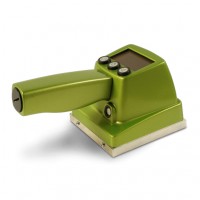
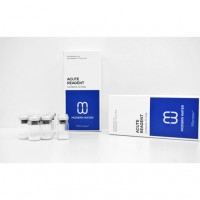
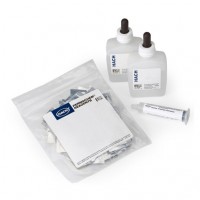
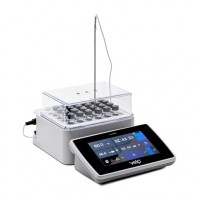
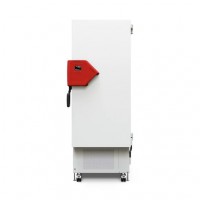
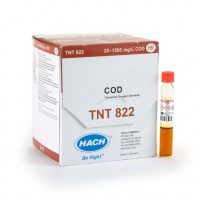
Do you have a question?
min 10 ch